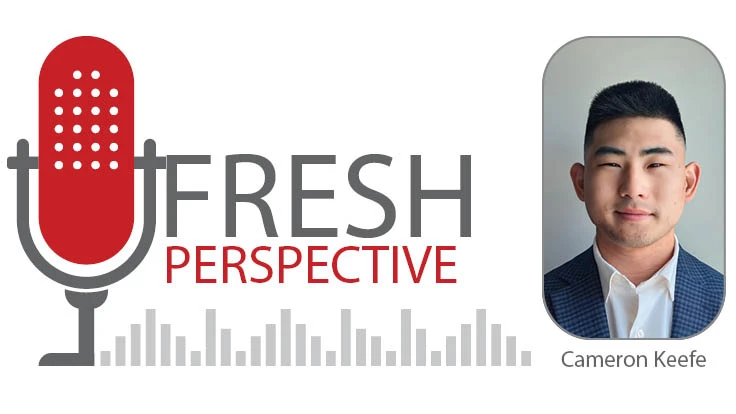US plastic bottle recycling rate at 29 percent in 2018
While domestic collection of plastic bottles for recycling increased by 52 million pounds, or 1.8 percent, in 2018, the overall recycling rate declined slightly by 0.4 percentage points, according to figures released by the Association of Plastic Recyclers (APR) and the American Chemistry Council (ACC), both of which are based in Washington, in the “2018 National Postconsumer Plastic Bottle Recycling Report.”
In 2018, 2.9 billion pounds of plastic bottles were collected for recycling, according to the report. However, the overall recycling rate for plastic bottles was 28.9 percent compared with 29.3 percent in 2017 and 29.7 percent in 2016. The five-year compounded annual growth rate for plastic bottle recycling declined 0.4 percentage points.

According to the report, exports of postconsumer plastic bottles declined in 2018, with 90 percent of the total number of plastic bottles collected for recycling remaining in the U.S. for processing. Less than 8 percent of polyethylene terephthalate (PET) bottles and less than 14 percent of high-density polyethylene (HDPE) bottles collected domestically were processed outside of the country, with less than half of exports leaving North America, the report notes.
Domestic PET reclaimer capacity utilization rose to 80 percent, while HDPE capacity utilization was 73 percent. The capacity utilization rate for HDPE bottles was 67 percent in 2017 and 66 percent in 2016. In 2017, the PET capacity utilization rate was about 71 percent, having declined from 2016’s figure of 73 percent.
“Plastics recycling is a vibrant, resilient industry that continues to remain strong in a challenging environment,” says APR President Steve Alexander. “Despite the reduction in export markets, demand for quality recycled material remains robust, and many recyclers are investing in updating and expanding our domestic infrastructure to meet that demand.”
“Brand owners have made public commitments to use significantly more recycled content in their products and packages in the months ahead,” says Steve Russell, vice president of ACC’s Plastics Division. “And manufacturers across the value chain are creating more circular business models for using—and reusing—plastics. It is therefore increasingly important to get as much of the right plastics into the recycling bin as possible.”
According to the report, PET and HDPE bottles make up 97.1 percent of the U.S. market for plastic bottles, with polypropylene (PP) comprising 1.8 percent; low-density polyethylene (LDPE), 0.7 percent; and polyvinyl chloride (PVC), 0.3 percent. Together, PET and HDPE comprise 98.9 percent of bottles recycled, with PP comprising 1.1 percent.
The “2018 United States National Postconsumer Plastic Bottle Recycling Report” is based on a survey of reclaimers conducted by More Recycling, Sonoma, California, and is available online at https://plastics.americanchemistry.com/Reports-and-Publications/2018-National-Post-Consumer-Plastics-Bottle-Recycling-Report.pdf.
Companies partner to recycle thermoforms
Vernon, California-based rPlanet Earth, a company that produces packaging from recycled polyethylene terephthalate (rPET) using a vertically integrated approach, has partnered with Green Impact Plastics to jointly develop and manage the purchase of postconsumer thermoform bales from California and other states in the region.
Green Impact Plastics says it is the first PET reclaimer solely recycling postconsumer PET thermoform packaging in the Americas. The company operates a facility in Ciudad Juarez, Mexico, in the state of Chihuahua, and its owners have more than 14 years of experience in PET recycling. In a news release about the partnership, Green Impact Plastics says it plans to open a second plant, this one in Vernon, near rPlanet Earth.
For the last two years, Green Impact has been addressing the challenges associated with recycling PET thermoforms. After consistently processing more than 1 million pounds in an initial series of trials, the company says it has overcome the technical challenges of processing this stream. Green Impact adds that it is ready to process up to 3 million pounds of material per month.
Green Impact Co-Owner and President Octavio Victal, who also serves as head of sustainability at rPlanet Earth, says the company’s Vernon plant will be equipped with grinding and washing equipment and will have the capacity to process 4 million pounds of thermoforms per month.
He says the California plant will be larger than the company’s existing operation in Mexico, which processes 2 million pounds per month, and will be “completely modified by [the original equipment manufacturer] with all of our R&D.”
The Plastic Recycling Corp. of California (PRCC), Sonoma, California, is working with rPlanet Earth to source PET thermoforms within the state. Sally Houghton of PRCC says, “We are very excited to help grow the market for this previously difficult-to-recycle material. We are working to encourage MRFs (material recovery facilities) to separate this valuable recyclable.”
rPlanet Earth says it dedicated investment and machine time to assess the material recycled at Green Impact under true industrial conditions. Using its solid-state polycondensation and extrusion capabilities, the company has manufactured PET sheet made from 100-percent-recycled thermoformed containers consistent with the specifications required for food-grade packaging.
rPlanet Earth is not investing in Green Impact’s California plant as of now, Victal says, but has an off-take agreement.
Get curated news on YOUR industry.
Enter your email to receive our newsletters.

Explore the February 2020 Issue
Check out more from this issue and find your next story to read.
Latest from Recycling Today
- Grede to close Alabama foundry
- Plastics Recycling Conference 2025: Working toward their targets
- SWACO rolls out new commercial recycling and food waste programming
- Updated: Matalco to close Canton, Ohio, plant
- Metso launches electric Anode Weighing and Casting Machine
- Circular by Shapiro releases '5 for Five' sustainability series
- Graphic Packaging set to close Ohio CRB facility
- Ameripen voices support for Maryland EPR bill






